Aceable | Real Estate Professional Education
Licensing and continuing education platform for real estate professionals

Background
AceableAgent is the online real estate school of Aceable. It's the first-ever provider of real estate education via a native mobile app with a mission to create and support real estate agents in their pursuit of becoming the best in the world through superior educational programming and instructional tools ready at their fingertips.
I was the Senior UX Designer at Aceable during the product development and launch. Specifically, I was tasked with designing and directing the building of a new edu-ecommerce experience for Aceable to enter the Real Estate licensing and continuing education space.
Project Role
User ResearchWireframing & PrototypingUser TestingUI & Interaction DesignUX DesignProduct MarketingStrategy & Research
Prior to AceableAgent, Aceable's first product had been a mobile-first platform for online drivers education, with entry into the real estate professional education space, we were now dealing with a vastly different type of customer and potential user -- spending significantly more money, and in need of professional product that delivers the best results for a profession that is their livelihood. All these factors combined to underscore the importance of deeply understanding all the different angles from which customers and users would be introduced to Aceable.
To get started, I wanted to learn from actual real estate professionals, agents and brokers about their experience getting licensed and maintaining their licences. We held three group interviews each consisting of 5 - 7 people. In recruiting participants for interviews, there were some key criteria I wanted to cover:
- a decade plus career as an agent or broker
- first years of their career
- currently in the process of getting licensed
- runs brokerage firm with multiple agents
- interested in becoming an agent or broker but has not taken any steps yet
To learn about their experiences searching for and buying online courses, their more broader online shopping behaviors and preferances, what devices they primarily use and so forth. We also conducted a tremondous amount of competitor research and looked at the space broadly online to see what experiences our target audience was used to.
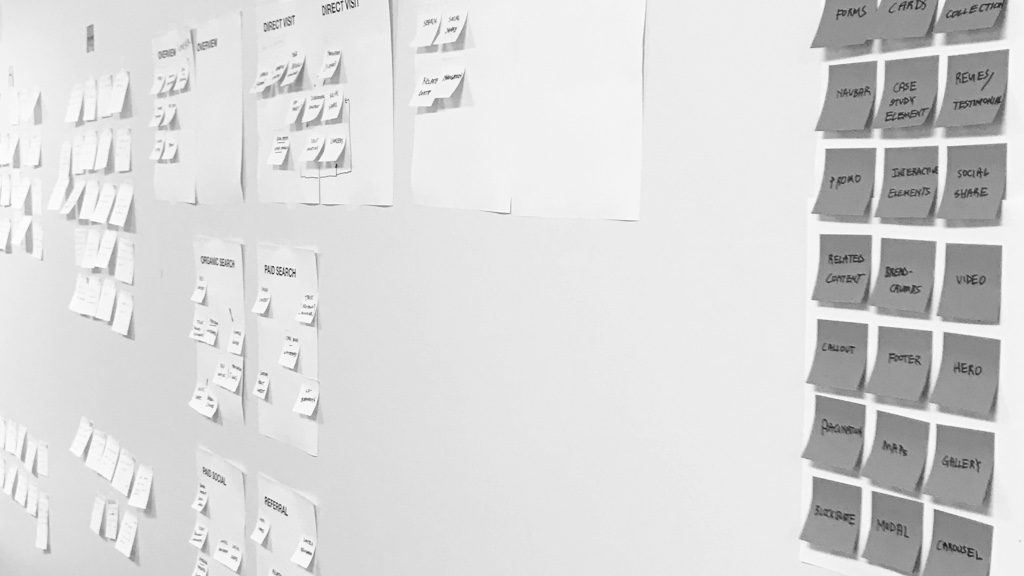
I made sure include the product, engineering, marketing, and instructional design teams in framing the interview questions, the focus group interviews, debriefly aftwards and ultimately reviewing summaries and conclusions from those sessions.
Somethings we learned:
- Given how busy agents are focused on primarily getting new business, most don't think about renewing their licenses until 1 - 2 weeks before it expires.
- Agents with a 10+ experience were particularly interested in elective courses that would enhance skillsets or areas where they were weaker like better using social media or video.
- Finding courses online and knowing exactly what courses will fulfill what requirements is a hassle.
- plrenleputeur knd t i atoyteiPrice and the ease with which ais thecould complete a course were t most critical indicator
I tchen led the team in a sticky note session to write user stories given what we had learned and observed from the focus group interviews.
Wireframing & Prototyping
From the user story writing session, I was able to formulate a more concrete picture of what the desired user experience and flow was. Together with a member of the engineering team, we broke each part of the experience into its modular components. This step allowed the engineering team from very early on to inform the range of what was feasible given our time constraints in launching the product.
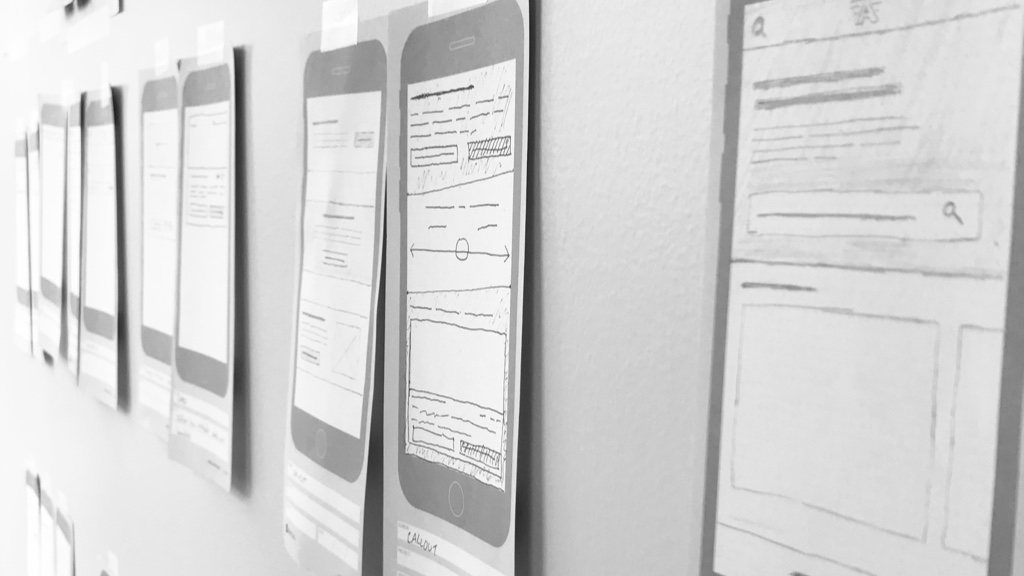
Designing the experience
Following task analysis and interviews I conducted using prototyped wireframes with real estate agents and internal stakeholders, I proceeded to the visual design stage with a particular focus on the course catalog and course catalog components.
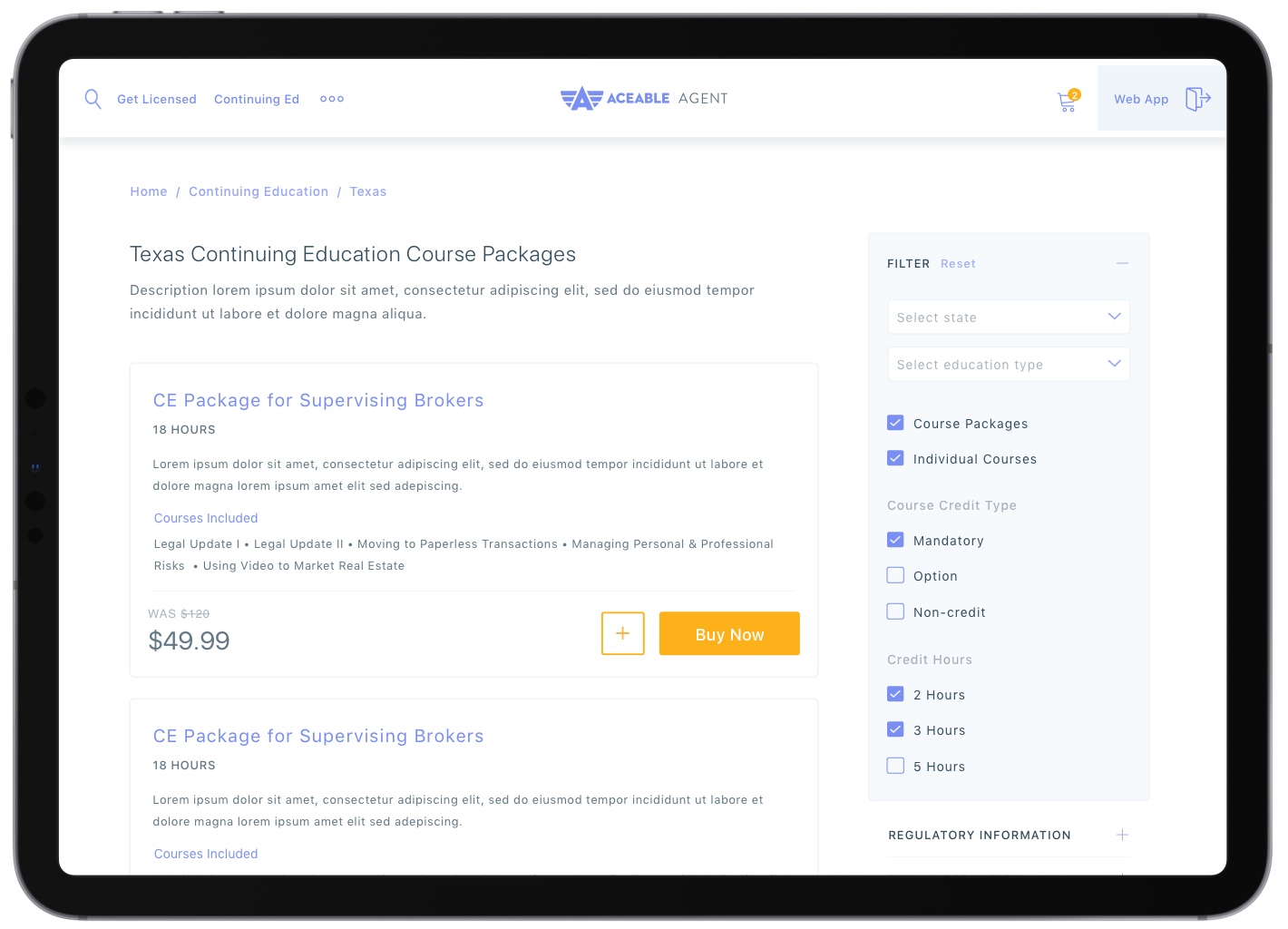 Course Catalog
Course Catalog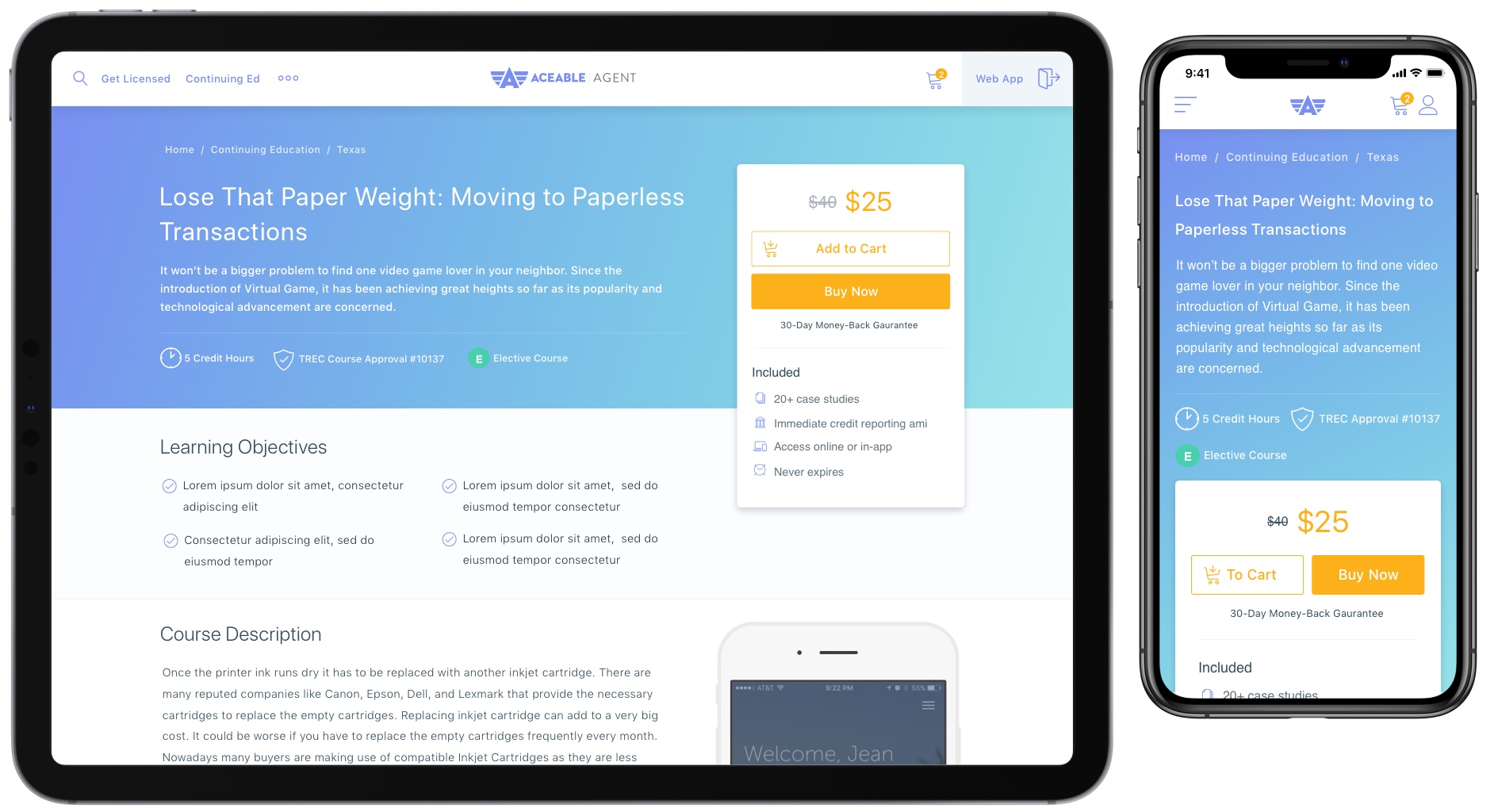 Individual Course Page
Individual Course Page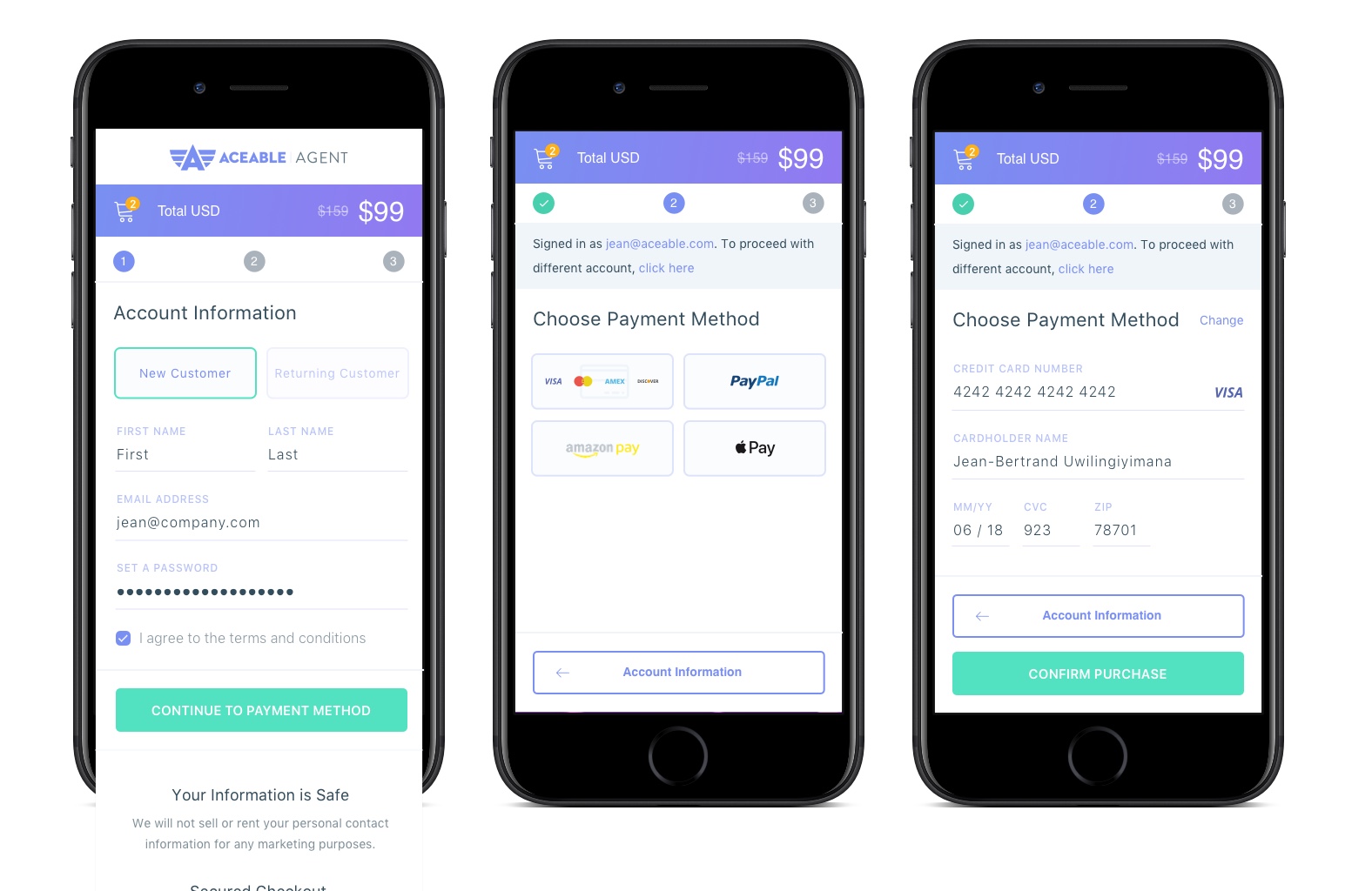 Checkout Mobile
Checkout Mobile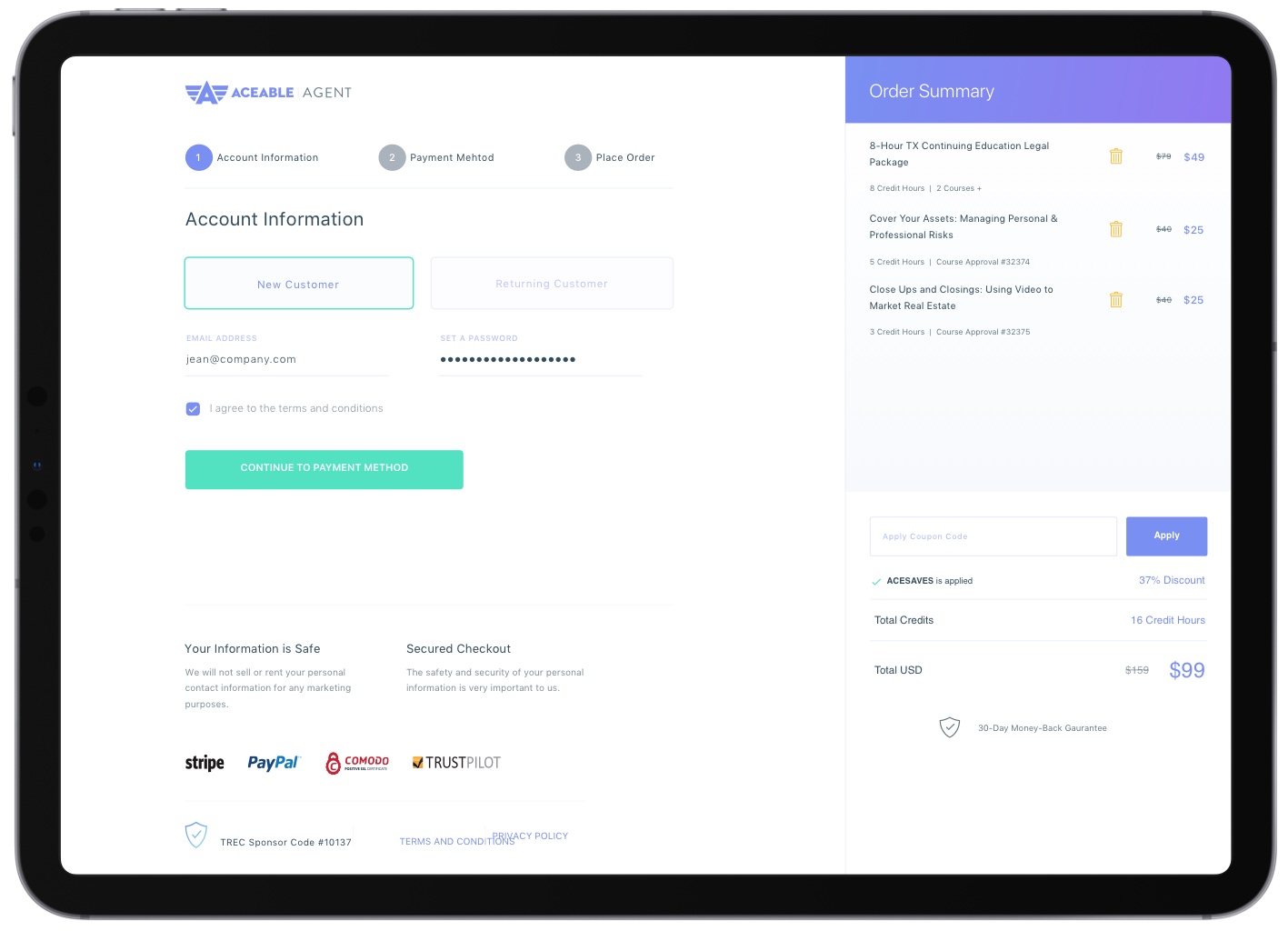 Checkout on Web
Checkout on Web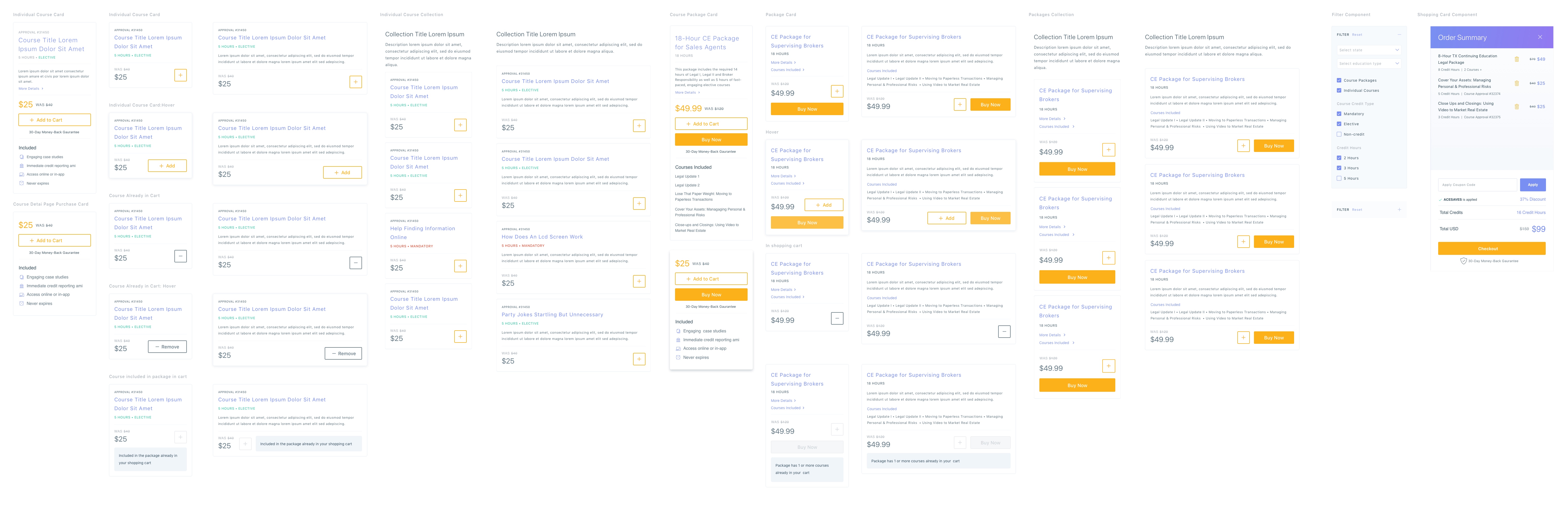 Course Catalog Components
Course Catalog Components